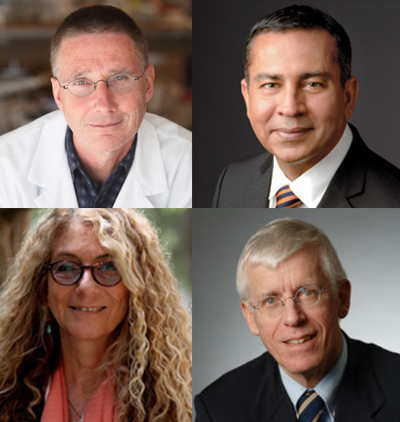
The nation’s medical research agency, the National Institutes of Health, funds research to help Americans live longer and healthier. Some 148 Nobel Prize winners have received support from the NIH, demonstrating how instrumental its funding has been to important discoveries that have enhanced health across the life span.
More than 80 percent of the NIH’s current annual budget of over $32 billion is awarded as grants to more than 2,500 universities, medical schools and other research institutes.
Last fiscal year, the Keck School of Medicine of USC obtained more than $140 million in NIH grants and ranked No. 1 in funds received per principal investigator.
NIH is a job creator and engine of economic growth
“I have witnessed firsthand the economic benefits generated by NIH funding. In fiscal year 2016, more than a third of the University of Southern California’s research budget came from over $254 million in NIH grants. The Keck School received more than half of those NIH grants, which help to fund the salaries of nearly 900 faculty, postdoctoral research associates and staff on the Keck School campus alone. Grants like these have helped propel USC into becoming the largest private employer in the city of Los Angeles.
“The NIH is a job creator, revenue generator and engine of economic growth. The NIH is a valuable asset that contributes to high-paying, skilled jobs and unmatched biomedical and health research expertise and resources.”
Rohit Varma is dean of the Keck School of Medicine of USC and director of the USC Gayle and Edward Roski Eye Institute. An accomplished physician and scientist, Varma is recognized worldwide as a visionary leader in the epidemiology of eye diseases.
Reversing the obesity epidemic in minority youth and families
• NIH grants helped to develop mobile games such as Virtual Sprouts, a digital gardening game, to educate children about nutrition and healthy eating habits.
• Over 20 percent of children and over 48 percent of adults in some minority populations are obese. This high level of obesity is related to a host of diseases such as diabetes, heart disease, some cancers and non-alcoholic fatty liver disease.
• Eating too fast or being around an irritating person can trigger overeating. Understanding family dynamics is a data-driven method of approaching the intractable problem of obesity.
“Funding from the National Institutes of Health and National Science Foundation has been seminal in the advancement of our work to reverse the obesity epidemic in minority youth and families.”
Donna Spruijt-Metz can discuss childhood obesity and mobile health technologies that help to increase physical activity in overweight minority youth.
She is director of the USC mHealth (Mobile Health) Collaboratory at USC’s Center for Economic and Social Research and is a professor of research in psychology at the USC Dornsife College of Letters, Arts and Sciences. Spruijt-Metz also holds a complimentary appointment in the preventive medicine department at the Keck School of Medicine of USC.
Stem cell research could transform medicine
• NIH funding to USC’s Department of Stem Cell Biology and Regenerative Medicine has resulted in research toward new treatments for an array of diseases: cancer, heart disease, arthritis, Alzheimer’s disease, kidney disease, HIV/AIDS, hearing loss and ALS, among others.
“By maintaining our pace of discovery and accelerating discovery to clinical translation, stem cells will transform medicine — providing replacement tissue, rejuvenating aging organ systems and creating models of human disease to enable drug discovery and new personalized treatments.”
Andy McMahon and his team study the mechanisms that underlie the assembly, repair and regeneration of critical organ systems, and have made enormous contributions to the understanding of the way the kidney matures during development.
McMahon is the W.M. Keck Provost Professor of Stem Cell Biology and Regenerative Medicine and Biological Sciences as well as the chair of the Department of Stem Cell Biology and Regenerative Medicine at the Keck School of Medicine of USC.
From e-cigarettes to pollution: USC research has contributed to public health policy
• The NIH funded the USC Children’s Health Study, one of the largest and most detailed studies of the long-term effects of air pollution on children. Analyzing 20 years of data, researchers discovered air pollution increases obesity, children’s lungs grow stronger as air quality improves and fewer children in Southern California have bronchitis due to decreasing pollution levels in the region.
• Compared to similar departments in the United States, the preventive medicine department at the Keck School ranked second in the nation when it comes to NIH-funded research.
“NIH grant funding has advanced the understanding of genes and cancer risk, air pollution and child development, and control of tobacco use by adolescents and young adults. The findings have contributed to public health policy, regulations and clinical care. Any threats to this funding would not only slow research, but also cut off the next generation of researchers.”
Jonathan Samet specializes in health risks associated with inhaled pollutants, including air pollution, secondhand smoke and radon. He is a former chair of the U.S. Environmental Protection Agency’s Clean Air Scientific Advisory Committee and is the director of the Institute for Global Health at the Keck School of Medicine.
